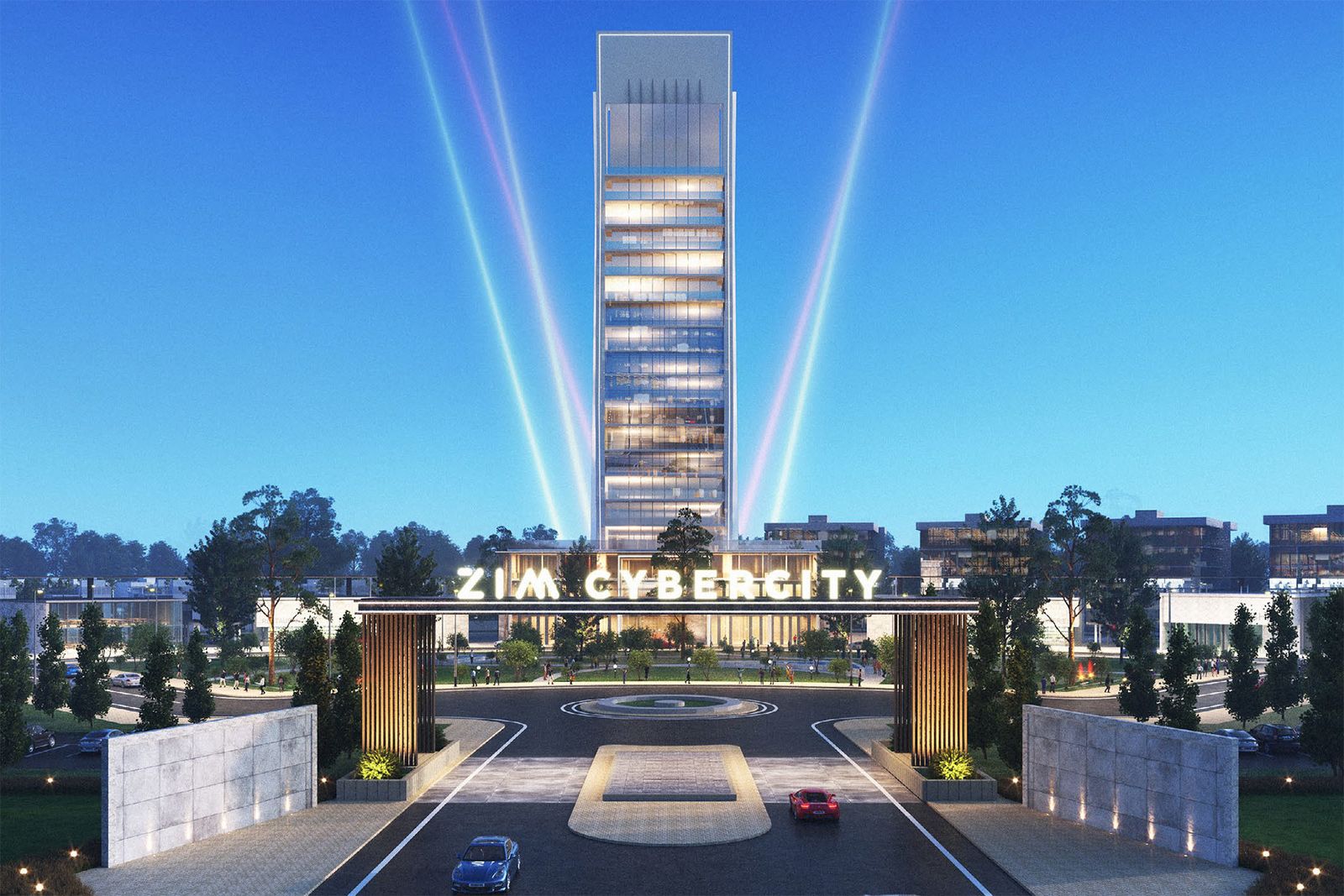
The Zimbabwe government is building a $60 billion Cyber City
The presidential palace and luxurious villas of wealthy residents will be placed there
The current leader of Zimbabwe plans to build a new capital on the road to the previous one – the poor and overpopulated city of Harare.
Mount Hampden, located 18km north-east of Harare, will house the national parliament, presidential palace, central bank headquarters, supreme court, stock exchange, mineral auction centers and villas of the wealthy.
“Mount Hampden is the new Harare. There is already a parliament building there, and all the ministers are moving there,” said Shaji Ul Mulk, a billionaire who supports the project.
Ul Mulk is investing $500 million in the project, which the billionaire believes will resemble Dubai, where he currently lives.
The billboard depicts green avenues, towering high-rises and glittering malls — all for a multinational group of affluent residents. The project also includes the construction of a solar power plant, which will be an important asset for a country that experiences 19-hour daily power outages.
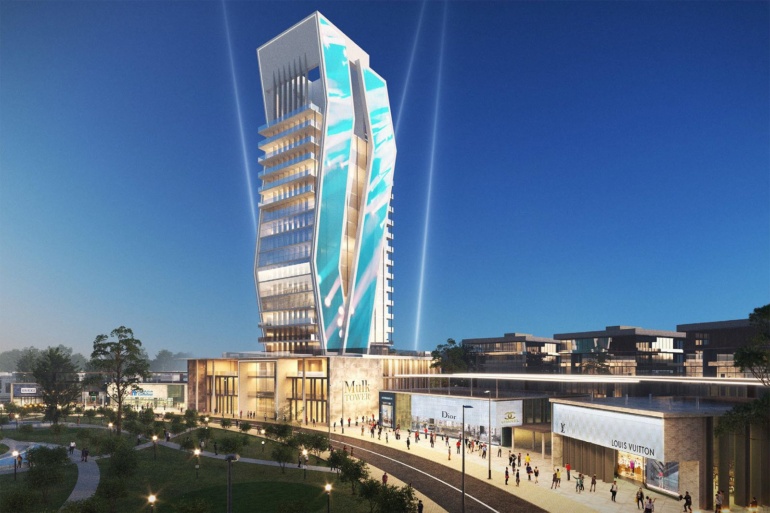
The new capital will be radically different from Harare, which in 20 years turned into a congested city with broken roads, without reliable electricity and water supply. Commercial buildings in the capital are only 40% full, and the city center is crowded with street vendors.
The future development of Mount Hampden reflects ‘the desire of the ruling elite not to spoil their lives by observing dirt and poverty,’ says Stephen Chan, professor of world politics at the School of Oriental and African Studies in London.
In 2005, Zimbabwe’s leaders ‘cleared’ slums and informal businesses in cities using earth-moving machinery in a program called Operation Murambatswina (Shona for ‘take out the trash’), which displaced 2.4 million people Now, instead of solving the underlying problems, the officials decided to completely relocate the capital.
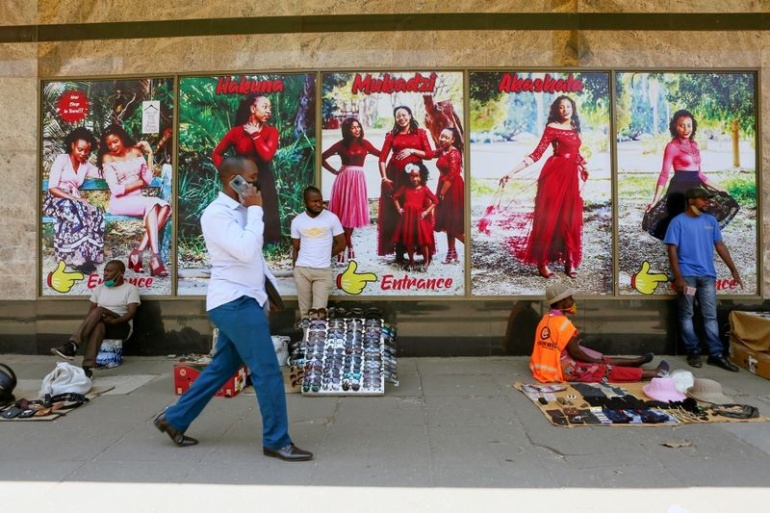
Critics say this is just the latest attempt by Zimbabwean President Emmerson Mnangagwa, 80 (who came to power in a 2017 coup) to revive the nation’s nearly collapsed economy. He announced projects for the construction of mines and slaughterhouses, for a total amount of about 30 million dollars, but none of them were implemented. A chronic shortage of foreign currency makes it difficult to promote large construction projects. Zimbabwe’s currency has collapsed, interest rates are the highest in the world, and annual inflation is 244%.
But all this does not scare Mnangagwa. The president laid the foundation stone for the project on July 20, saying it was a testament to his ability to attract funding.
Investor confidence is growing in Zimbabwe!
This weekend construction began on the multimillion-dollar Cyber City in Mount Hampden.
Under my leadership we shall open the door to more investment and build a brighter future for our country.
Action, not words! pic.twitter.com/i0x8GeG4Cd
— President of Zimbabwe (@edmnangagwa) November 14, 2022
Mnangagwa’s government is not the only one dreaming of building a cyber city from scratch. Saudi Arabia’s Crown Prince Mohammed bin Salman is planning a $500 billion futuristic city called Neom, while Indonesian President Joko Widodo is pushing for a new capital city of Nusantara at an estimated cost of $34 billion.
Still, the challenges are enormous for Zimbabwe, which has been wracked by economic and political upheaval for the past two decades. The country cannot earn enough foreign currency to finance the food and fuel imports it needs and is locked out of international capital markets because it cannot service its $13 billion foreign debt.
Tendai Biti, a leading opposition figure and Zimbabwe’s former finance minister, says no plans have been submitted to parliament for approval, so there are concerns about the lack of detail on the terms of investment in Mount Hampden.
The event attracts the interest of China, which supported Zimbabwe during the liberation struggle in which Mnangagwa participated. The Asian country built a new $140 million parliament building in Mount Hampden itself as a gift to Zimbabwe.
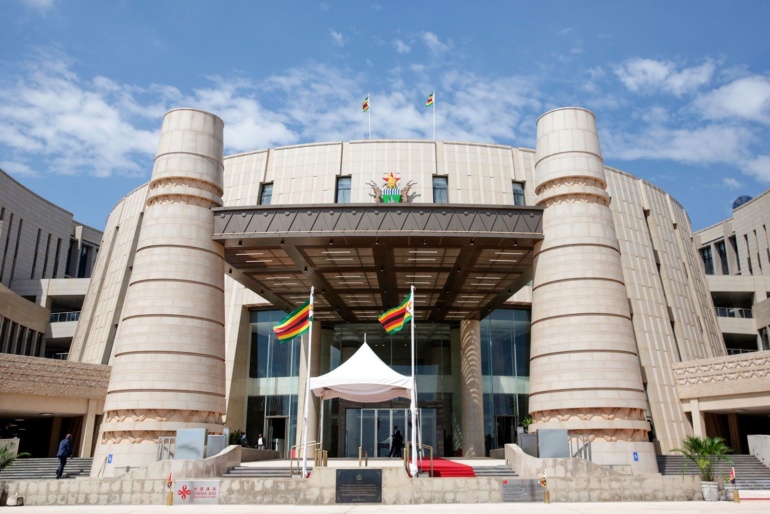
Deputy Local Government Minister Marian Chombo, whose department oversees municipalities, said in a written response to questions that the ‘cyber city’ is attracting interest from commercial, retail and industrial investors, without naming them. Ul Mulk said Zimbabwe’s biggest bank, CBZ Holdings, had already committed $100 million in funding.
Investors are offered a five-year exemption from company tax, lower income tax for employees and accelerated immigration clearance for foreign staff.
At least 12% of the 250 luxury villas to be built in the initial phase have been sold in advance, according to Ul Mulk. The cost of one reaches half a billion dollars. According to the World Bank, annual per capita income in Zimbabwe is $1,737.
If Mount Hampden does go ahead with development, Harare is likely to face further decline. The city was founded in 1890 by the Pioneer Colony, a group of mercenaries sent by South African businessman and politician Cecil John Rhodes from the British South Africa Company to conquer an area believed to be rich in gold. Harare was built for a population of 200,000, and now it has 1.6 million people, with infrastructure and services not keeping up.
“Garbage has been lying uncollected for months. There are puddles everywhere because the drains are blocked. Roads in holes. The water from the taps stinks,’ said Andrew Mushonga, 38, a resident of Harare.
Local residents closer to the planned development woke up one day to see a billboard along the Old Mazowe Road, which runs north-west of Harare. He marked the location of the new capital, including the future shopping center, which should be built near the brick houses of the residents. Much of the 13,000 hectares earmarked for development has already been cleared, and now only one house stands there. The property owner declined to comment.
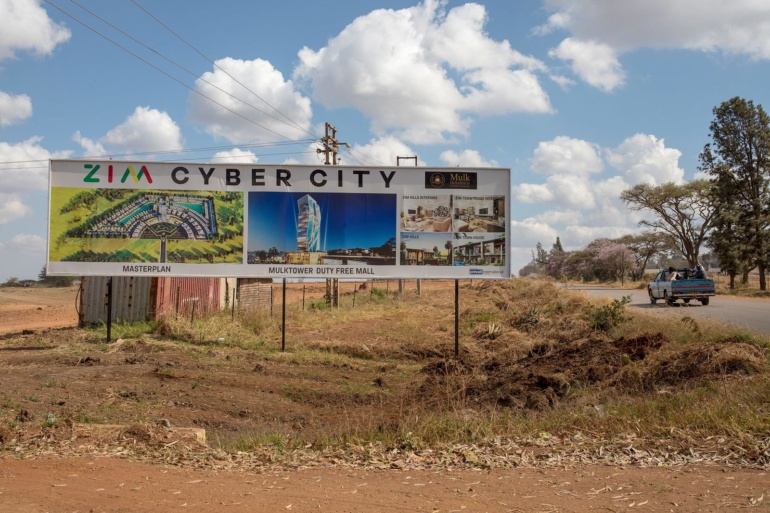
But even with the cleared land, there are still doubts that development of the project will ever progress.
“This would be an anomaly in a country where the majority has faced infrastructure decay. It is unlikely to ever be built even in Zimbabwe, a country with skewed priorities,” said London-based professor Stephen Chan.

